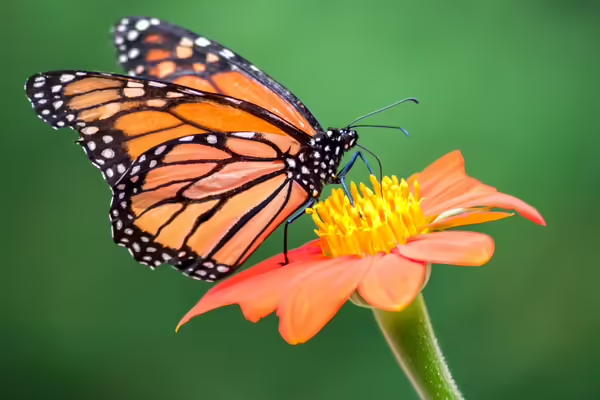
CHAMPAIGN, Ill. - Help support pollinator conservation while exploring the outdoors during the Champaign-Urbana Pollinator Quest, a weeklong community science survey taking place June 15-21 in celebration of National Pollinator Week 2025.
This event invites residents of all ages to participate in a regional insect survey using the free iNaturalist app. The goal: get as many community members as possible to observe and photograph insects across Champaign-Urbana and contribute to this growing database of local biodiversity.
“Pollinators are essential to our ecosystems and food systems,” said Karla Griesbaum, Extension Educator with University of Illinois Extension. “Events like the Pollinator Quest not only raise awareness but also empower residents to become community scientists and contribute to real-world research and conservation efforts.”
Participation is simple and can take place any time between June 15 and June 21. Observers can use either the iNaturalist mobile app or the website. Photos and observations submitted during this time will automatically be added to the Champaign-Urbana Pollinator Quest project on iNaturalist.
For more information, visit go.illinois.edu/CUPollinatorQuest
University of Illinois Extension develops educational programs, extends knowledge, and builds partnerships to support people, communities, and their environments as part of the state's land-grant institution. Extension serves as the leading public outreach effort for University of Illinois Urbana-Champaign and the College of Agricultural, Consumer and Environmental Sciences in all 102 Illinois counties through a network of 27 multi-county units and over 700 staff statewide. Extension’s mission is responsive to eight strategic priorities — community, economy, environment, food and agriculture, health, partnerships, technology and discovery, and workforce excellence — that are served through six program areas — 4-H youth development, agriculture and agribusiness, community and economic development, family and consumer science, integrated health disparities, and natural resources, environment, and energy.